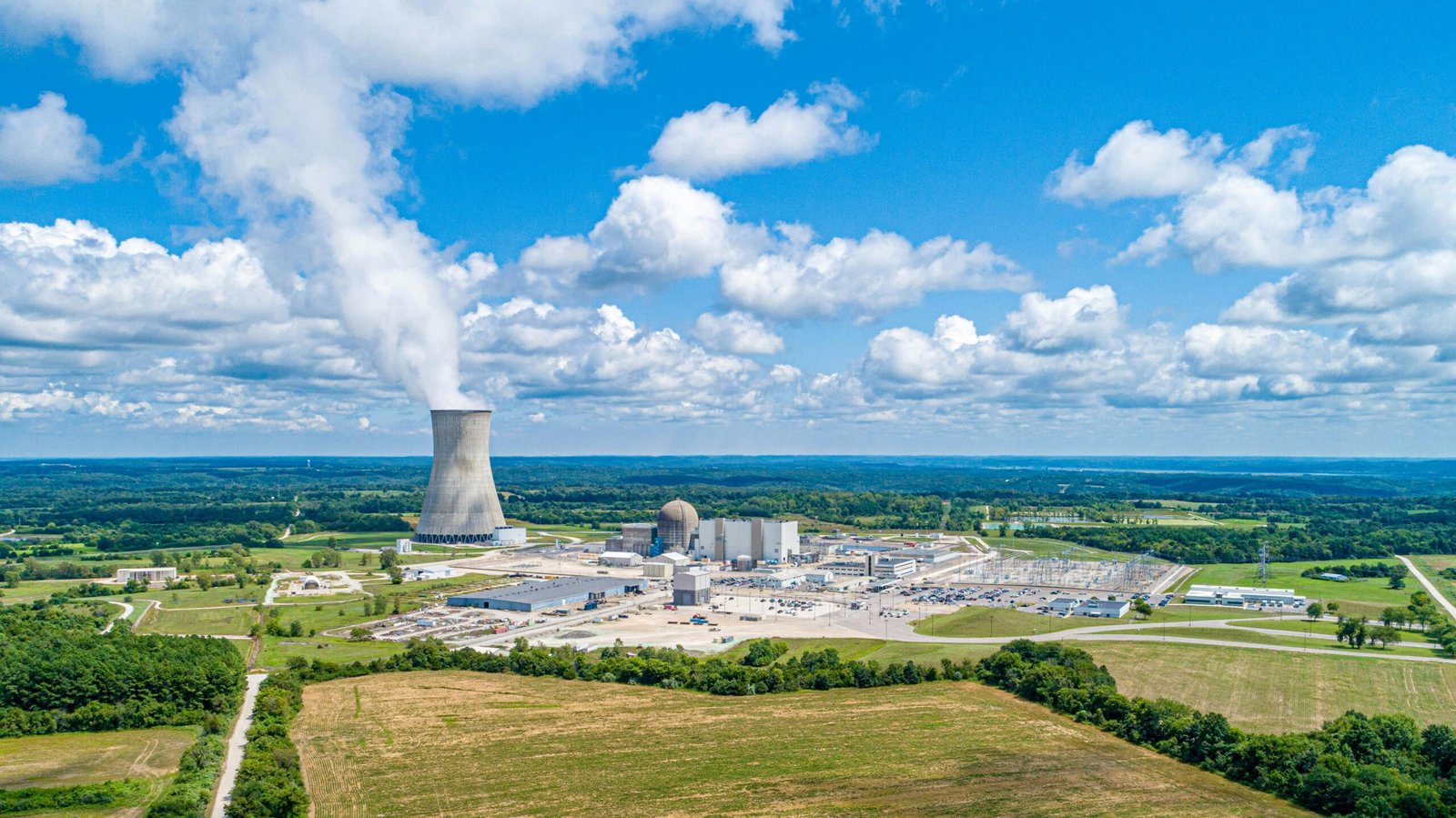In a significant shift toward sustainable energy, Google has announced a deal with Kairos Power to use small nuclear reactors for powering its AI data centers. The partnership aims to leverage nuclear power’s ability to provide stable, carbon-free energy to support Google’s growing artificial intelligence operations.
Nuclear Power to Meet AI’s Massive Energy Demands
The agreement marks a crucial step for Google, as the tech giant seeks to meet the rising energy demands of its AI infrastructure, which requires vast amounts of electricity to run and cool data centers. Kairos Power, a California-based startup, will provide advanced nuclear reactors, which Google plans to bring online by the end of this decade. Additional reactors are expected to follow by 2035.
Michael Terrell, Google’s senior director for energy and climate, highlighted the importance of the deal. “The grid needs new electricity sources to support AI technologies,” Terrell explained. He emphasized that the agreement with Kairos Power accelerates the development of innovative energy solutions, allowing AI technologies to reach their full potential while maintaining environmental responsibility.
The Shift Toward Nuclear in the Tech Sector
As AI technology expands, major tech firms are increasingly exploring nuclear energy as a sustainable alternative to traditional power sources. Data centers, the backbone of AI, consume massive amounts of electricity. According to Goldman Sachs, energy consumption by data centers is projected to more than double by the end of the decade. John Moore, industry editor at TechTarget, explained that specialized hardware in AI data centers demands substantial power, generating significant heat in the process. Efficient cooling solutions, alongside reliable energy, are essential to sustaining operations.
Nuclear energy, with its carbon-neutral footprint and ability to supply 24/7 power, has become a compelling option for tech companies that are committed to reducing their carbon emissions. The growing trend is evident with tech giants like Amazon and Microsoft also investing in nuclear energy projects. Amazon, for instance, recently purchased a nuclear-powered data center in Pennsylvania, and Microsoft plans to restart operations at the Three Mile Island energy plant, famous for being the site of the 1979 nuclear accident.
Kairos Power: Pioneering Advanced Nuclear Technology
Founded with a focus on revolutionizing nuclear energy, Kairos Power specializes in advanced reactors that utilize molten fluoride salt as a coolant—an innovation that sets them apart from traditional nuclear plants, which rely on water cooling. This technology promises higher safety standards and improved efficiency. Kairos’ demonstration reactor, currently under construction in Tennessee, marks the first new type of nuclear reactor to receive regulatory approval from the U.S. Nuclear Regulatory Commission in 50 years.
Jeff Olson, an executive at Kairos Power, expressed enthusiasm about the collaboration, noting that this deal is critical to accelerating the commercialization of advanced nuclear technology. He emphasized that demonstrating the technical and market viability of these reactors is key to decarbonizing power grids.
Regulatory Approvals and Future Prospects
Before Google’s plans can fully materialize, the project must gain approval from the U.S. Nuclear Regulatory Commission and local agencies. Nuclear power, while a promising solution for reducing emissions, remains a contentious issue due to the risks associated with radioactive waste and the potential for accidents. However, advocates argue that advances in nuclear technology, like those developed by Kairos Power, offer safer, more efficient alternatives to older models.
This collaboration between Google and Kairos Power comes at a time when the U.S. and other nations are pushing to expand nuclear energy capacity. At the 2023 United Nations Climate Change Conference, the U.S. committed to tripling its nuclear power capacity by 2050 as part of broader efforts to reduce reliance on fossil fuels.
The Future of AI and Energy
The demand for energy to power AI is only expected to grow as more advanced AI systems are deployed across industries. By investing in nuclear energy, Google is not only ensuring a sustainable power source for its data centers but is also setting a precedent for the tech industry. This move aligns with the broader trend of tech giants exploring cleaner, more reliable energy sources to support their operations while reducing their environmental impact.
As the world moves toward AI-driven technologies, collaborations like the one between Google and Kairos Power will be crucial for ensuring that energy grids can keep pace with these innovations. The push for advanced nuclear reactors may be the key to balancing the need for high-powered computing with global climate goals.
Key Takeaways
- Google’s Deal with Kairos Power: Aims to use advanced nuclear reactors to power its AI data centers by 2030, with additional reactors planned by 2035.
- Rising Energy Demands: AI data centers require immense energy, and nuclear power offers a carbon-free solution.
- Nuclear Energy in Tech: Companies like Amazon and Microsoft are also turning to nuclear as a sustainable energy source for data centers.
- Regulatory Challenges: The project will need approval from U.S. regulators, but advancements in reactor technology could make nuclear power safer and more efficient.
With this move, Google joins the ranks of tech innovators turning to nuclear power, paving the way for a cleaner, AI-driven future.





